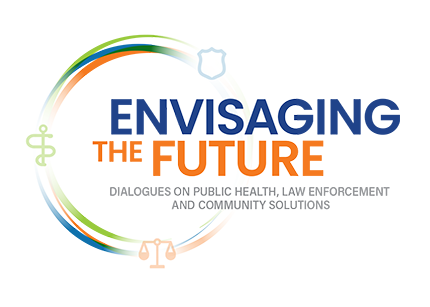Professor John Middleton, GLEPHA Fellow, presented evidence on behalf of the Global Law Enforcement and Public health Association, to the meeting of the UN Special Rapporteur on the right to adequate housing, Mr Rajagopal, and the UN Special Rapporteur on poverty and human rights, Olivier De Schutter, on April 2nd, 2024.
GLEPHA is pleased to reproduce this statement here, with permission of the UN Rapporteurs Secretariat. Their full report is due to be published early in July 2024.
Professor Middleton’s intervention led to a further opinion piece in the British Medical Journal, with Professor Alex Bax, Chief Executive of the UK Pathway, the UK Healthcare for homeless people charity. Bax A, Middleton J. Homelessness is a health emergency: criminalising homeless people will only make it worse.
We reproduce Professor Middleton’s evidence here.
It remains GLEPHA’s view that there is no evidence for criminalisation of social and societal problems. Collaborative interventions between health, policing, social welfare and housing authorities are needed to address problems of exclusion, vulnerability, homelessness, poverty, addictions, mental and physical disability.
Evidence for the UN Special Rapporteurs session on the Criminalisation of homelessness and poverty
Thank you for inviting me to attend the expert consultation meeting of the UN Special Rapporteur on the right to adequate housing, Mr Rajagopal, and the UN Special Rapporteur on poverty and human rights, Olivier De Schutter, on April 2 nd , 2024. I am writing to follow up my comments at the Special Rapporteurs’ session.
I joined your meeting on behalf of The Global Law Enforcement and Public Health Association (GLEPHA) of which I am a Fellow. I am also Vice President of the Global Network for Academic Public Health (GNAPH) and speak with 40 years of experience in public health services, academia, and action research. I am also connected with the Crime To Be Poor research group in the UK and will share some of their research with the Special Rapporteurs.
GLEPHA has members from all over the world and comprises leading edge policing, teaching and advocacy for policies which reduce crime and improve health for individuals and communities. Many of our most active contributors are in the US, Canada, Australasia, and South Africa.
GNAPH represents the Associations of Schools of Public Health in the six World Health Organization regions.
We are all concerned about policies which criminalise vulnerable people, women and children and people from minorities; we consider criminalisation to be a negative approach to addressing societal problems which are better met by understanding individual problems, providing preventive measures, and enabling supportive recovery and rehabilitation. Criminalising homelessness represents one of the most extreme examples of the victim blaming approach, and presents, the possibility to make worse the conditions which caused the problem in the first place; for example, by denying services and rights to people who were first homeless, and then giving them criminal convictions for this. Criminalisation and criminal justice interventions alone have never been effective in the control of drug related harms, (1,2) or addressing harms related to sex work. (3,4) An example of a recent Edmonton Police intervention with homeless people is a case study of what is possible when policing actions against homeless encampments, are driven by safety concerns, and delivered in partnership with health and social welfare services for homeless people. (5) (Appendix 1)
Most of my professional work has focussed on healthy public policies and on preventing problems arising in the first place. Many of the problems of homelessness arise through inequalities in income, access to education and unequal access to healthy environments. People with mental health problems, disabilities, and other vulnerabilities lack the means to cope, exposing them to poverty and homelessness, and criminal stigma. The problems faced by women, single parents, and people of different sexual orientation, need to be addressed with care and support, not with a criminal record and further societal exclusion. Adverse childhood experiences expose people to lifelong physical, mental and social harms and there is growing recognition of the need for trauma-informed approaches to policing, health and social care. (6,7)
The Special Rapporteurs clearly recognise the need for policies to prevent homelessness. The Finnish approach ‘Housing First’ is a model which should be encouraged globally. (8) The problem of the homeless, is being without a home. In addition to the overall housing first policy, there are now a wide range of self-build projects which address the need for a home and offer homeless people on the job training and skills in construction, helping both a housing and employment and economic need. And there is no reason why homeless people should not also benefit from high quality, innovative design and environmental standards in these schemes. Some examples of UK self-build and self -help housing schemes with homeless people are at appendix 2.
Crime to be Poor research and express concerns that criminal justice services act unfairly and give worse outcomes in terms of punitive sentences to people who are homeless, poor, and vulnerable. The processing of these people is unequal from the start, with rights and opportunity for representation and appeal often denied. The treatment of women through criminal justice in the UK seems particularly harsh with many imprisoned who have not been represented in court. Why pregnant women are imprisoned at all should be a concern.
Regarding drugs offences, the rich go to rehab, the poor go to jail. The stigmatisation of a criminal record only adds to the problem of being homeless in the first place, adding to numbers of homeless people and to their inability to help themselves back into regular society. Some key references from Crime to be Poor research are attached as appendix 3.
Thank you again for the opportunity to submit evidence.
Professor John Middleton
Global Law Enforcement and Public Health Fellow
Vice-President, Global Network for Academic Public Health
References
-
Csete J, Kamarulzaman A, Kazatchkine M, Altice F. et al Public health and international drug policy. Lancet 2016; 387: 1427–80. (The Johns Hopkins Lancet Commission on Drug policy and health) https://www.thelancet.com/action/showPdf?pii=S0140-6736%2816%2900619-X
-
Drug policy: grounding policy in evidence . Lancet November 25th 2023. Editorial DOI: https://doi.org/10.1016/S0140-6736(23)02617-X
-
Loch E. The case for fully decriminalising prostitution. Oxford University Faculty fo Law, March 12th 2022. Available at: https://blogs.law.ox.ac.uk/ouulj/blog/2022/03/case-fully-decriminalising-prostitution.
-
World Health Organisation. Global HIV, hepatitis and STIs programmes. Sex workers. https://www.who.int/teams/global-hiv-hepatitis-and-stis-programmes/populations/sex-workers
-
Edmonton police escalating teardown of homeless encampments, Alberta launches city reception centre.https://edmontonjournal.com/news/local-news/alberta-to-open-edmonton-homeless-reception-centre#:~:text=City%20police%20are%20escalating%20the,to%20take%20in%20displaced%20residents.
-
Bellis, M.A., Hughes, K., Ford, K. et al. Adverse childhood experiences and sources of childhood resilience: a retrospective study of their combined relationships with child health and educational attendance. BMC Public Health 18, 792 (2018). https://doi.org/10.1186/s12889-018-5699-8
-
Bellis M et al. Tackling adverse childhood experiences: state of the art and options for action. Public Health Wales, WHO EURO, Liverpool John Moores University, January 23rd 2023. https://www.ljmu.ac.uk/-/media/phi-reports/pdf/2023-01-state-of-the-art-report-eng.pdf
-
Lester P. Eradicating homelessness in Finland. PD &R Edge. July 11th 2023. Available at: https://www.huduser.gov/portal/pdredge/pdr-edge-international-philanthropic-071123.html
Appendices
Appendix 1: a case study of a policing and social wraparound service approach to homelessness in Edmonton, Canada
We have had some good movement in Edmonton over the past few months. Our people living in encampments some of which were homeless were being victimized by many, including a couple of gangs. We made decision in partnership with some of our city services and government to take them all down of which there were literally 1800 plus in the city.
The results have been quite staggering and the data very telling.
First several groups were overemphasizing the size of the homeless population.
Second that our issue might not be homelessness or maybe better stated that might have been something that was an over generalization of the problem.
Third is we have two very distinct problems that could help us get much better outcomes; rough estimates that we have 200 – 400 chronic folks frequenting this space that have either severe mental health issues or severe addictions issues or as we all know have both because of the relationship. The second issue was an affordable housing issue that is also growing amongst our immigrant population. If we can separate these issues, we can move much quicker to success.
To better understand this problem with the appropriate actions in partnership with the province we built a navigation centre for assessment led by the government with us being partners. A place to take people where they can receive a health assessment, get connected to services in real time. Get their identification in minutes versus weeks that allows them to get their benefits. Can receive either suboxone or sublocade which gives some intervention time before a person can overdose in real time via doctor or paramedic with Dr on IPAD, housing services, stabilization services and the list goes on. Point being real time decisions with the authorities to do so in the same place.
Touch wood but we have not had an overdose in encampments, or a person burn to death in this environment since inception. We have moved from transporting people to people now walking in for services, this will feed into the 1000’s of recovery beds the province is opening in the next couple years.
The main point of this is we might actually be getting closer to getting the question right, which is helping us get better outcomes. We are taking a small team to speak on this in DC in April. If we get Law enforcement and public health aligned on this, with systems going in the same direction, we should be able to shrink social services by 20 -30 percent in a shorter time frame than we think.
Dale R. McFee, OOM
Chief of Police
Edmonton Police Service
9620 103A Avenue | Edmonton, AB T5H 0H7
Appendix 2 Self-build and self-help housing initiatives involving homeless people: some UK examples:
Walter Segal Self build trust. https://segalselfbuild.co.uk/projects/consortium.html Consortium Self build: Peckham, London: Nine single person units built by young homeless people for themselves.
Self-Build: an innovative solution for ending homelessness in the 21st Century. James Andrew Cox26 Apr 2018 https://lichfields.uk/blog/2018/april/26/self-build-an-innovative-solution-for-ending-homelessness-in-the-21st-century/
Canope and Gyroscope Self-help housing: https://www.communityledhomes.org.uk/what-self-help-housing#:~:text=Self%2Dhelp%20pioneers,than%20100%20self%2Dhelp%20organisations.
Jones, P. (Designer). (2022). Homes for Futures: Design of Self Build Homes for Homeless People YMCA. Design https://researchportal.northumbria.ac.uk/en/publications/homes-for-futures-design-of-self-build-homes-for-homeless-people-
Alabare. Supporting veterans who have been homeless. https://alabare.co.uk/what-we-do/veterans/self-build-scheme/
The Big Issue, September 27th 2021. https://www.bigissue.com/news/housing/londoners-tackle-housing-crisis-themselves-with-largest-community-building-project/
Beattiepassive. Modular Housing for the Homeless, Cardiff. https://www.beattiepassive.com/projects/modular-housing-for-the-homeless
Appendix 3. Criminalisation of poverty and homelessness: Research resources from UK Crime To Be Poor research group. https://crimetobepoor.org
Criminalisation of poverty – unequal and unfair action by criminal justice systems
https://www.thejusticegap.com/anti-social-behaviour-law-punishing-the-poor-and-vulnerable
Epstein R, Middleton J. https://blogs.bmj.com/bmj/2021/05/21/it-is-more-urgent-than-ever-that-we-end-the-criminalisation-of-poverty/
Epstein R, Middleton J. https://betterhealthforall.org/2023/12/05/punishing-mental-illness-inequality-in-health-and-in-the-criminal-justice-system/
Criminalisation of vulnerable people, under anti-social behaviour laws
https://www.crimeandjustice.org.uk/resources/go-directly-jail-shouting-begging-and-rough-sleeping
Women in prisons
https://www.crimeandjustice.org.uk/resources/we-should-stop-sending-pregnant-women-prison
https://www.theguardian.com/commentisfree/2022/jan/18/babies-die-england-stop-jailing-pregnant-women
https://www.crimeandjustice.org.uk/resources/increasing-prison-places-women-makes-no-sense






